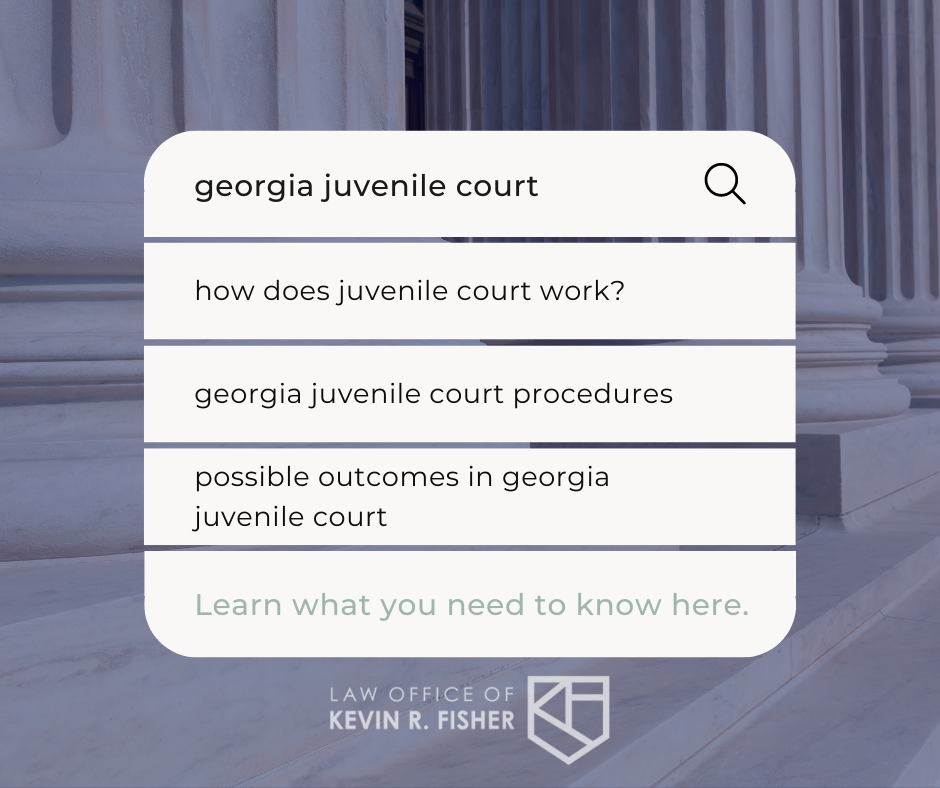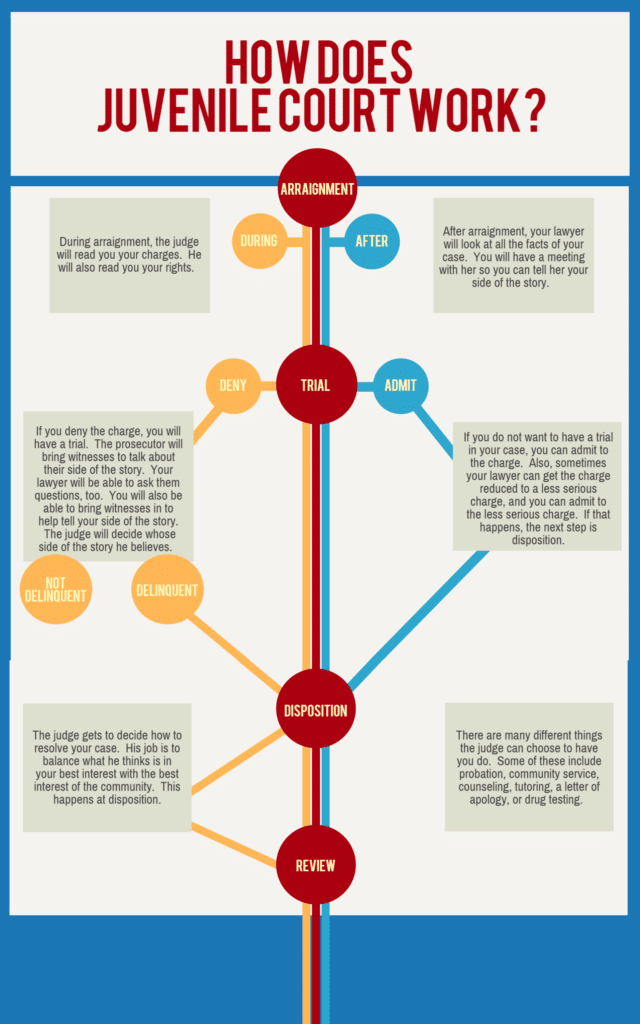The Georgia Juvenile Court system is specifically tasked with “protect[ing] the community, impos[ing] accountability for violations of law, provid[ing] treatment and rehabilitation, and equip[ping] juvenile offenders with the ability to live responsibly and productively.” O.C.G.A. § 15-11-1.
Georgia Juvenile Courts generally have jurisdiction over individuals who commit offenses prior to their 17th birthday. There are a few exceptions to this which apply in very serious cases.
For Juvenile Court jurisdiction, the date of the offense is relevant, not the court date. So if a child commits a crime at 16 years old but turns 17 before their court date, the juvenile court will still have jurisdiction.
In this article, you’ll get a very brief overview of how Georgia’s Juvenile Courts work, including the types of offenses that Juvenile Courts hear, the types of proceedings that occur in Juvenile Courts, and possible outcomes that can occur.
Classes of Offenses in Georgia Juvenile Courts
If your child has been charged with an offense in Juvenile Court, the offense will be one of the following:
- CHINS Offense: Children in Need of Services (CHINS) Offenses include: not going to school (truancy), disobeying a parent (ungovernable), or running away from home. These are offenses only a child can commit and are generally the least serious. Usually, these cases are referred to counseling or other services.
- Misdemeanor: Offenses like simple battery, simple assault, petty theft, or criminal trespass. These are generally not offenses that can send a child to the RYDC unless the child has a significant history or other issues. Your child will likely face probation, classes, community service, or counseling.
- Felony: Offenses like burglary, drug possession (other than a small amount of marijuana), thefts of guns, cars or property over $1500 in value. These are more severe offenses, and a child can get juvenile time in an RYDC, YDC, or custody of DJJ.
- Designated Felony: Offenses such as aggravated assault, robbery, aggravated battery, gang charges, etc… These are very serious offenses that can carry a sentence of up to 5 years in a Youth Detention Center (YDC). The sentence length depends on the offense, your child’s record, and whether the crime is considered a “Class A” or “Class B” designated felony (Class A being the more serious of the two).
- Violation of Probation: This occurs when a child on probation breaks the rules of probation. The sentence for this type of offense will largely depend on the child’s history with the court and the recommendation from the Probation Officer.
General Court Procedure in Georgia Juvenile Courts
- Arraignment: This is the court hearing where the child tells the court whether they admit or deny the charges of the petition.
- Trial: At the trial, a juvenile court judge will listen to both sides and hear from witnesses who have information about the case. Your child’s attorney will ask questions and may have witnesses to speak in your child’s defense. Your child will have a chance to speak if he or she wants to, though the child does not have to. If your child chooses to have a trial, it is crucial that you get the name, address, and number of any witnesses you want at the trial to the attorney.
- Adjudication and Disposition: There are no juries in juvenile court. The judge decides whether or not your child did what he or she is accused of. If the judge finds that your child did do what he or she is accused of, then the judge will find them delinquent. That finding is called an adjudication. You might hear the judge use the phrase “adjudicated delinquent” which means the judge has found your child guilty. If that happens, the judge will give a sentence or disposition to the child. Sentences can mean anything from probation, curfews, community service, letters of apology, or incarceration.
Possible Outcomes in a Georgia Juvenile Case
In a Georgia Juvenile Court case, the judge has a lot of leeway once a kid is adjudicated delinquent. Under O.C.G.A. § 15-11-601, Juvenile Court judges must enter the “least restrictive” disposition order possible. In determining an appropriate disposition, judges must take into consideration “the seriousness of the delinquent act, the child’s culpability based on the circumstances of the case, the child’s age, the child’s prior record, and the child’s strengths and needs.
Below are some of the disposition orders that a judge may enter after a child is adjudicated delinquent:
- Abeyance: The Judge may hold your child’s case open for a certain period (6-12 months). If your child can stay out of trouble, the case will be dismissed.
- Probation: Think of probation as having another parent who gives your child rules to follow and checks in to make sure they follow those rules. Probation can also be a chance to stay out of the RYDC so long as your child follows the rules.
- STP: A 30-day sentence to the RYDC that the judge can give some children for certain charges.
- HITS: High-Intensity Supervision is a form of probation where your child’s Probation Officer checks on them more frequently.
- Commitment: This is when the judge takes your child out of your legal custody and turns them over to DJJ. The order lasts 2 years. During that time, your child could be at an RYDC, a group home, a treatment facility, or back in your home.
- Restrictive Custody: This is a long sentence to the YDC that is possible in some cases. It can be as long as 5 years. We will talk with you about this if this is something that your child is facing.
It is important to note that not all of these options are available in all cases. For instance, restrictive custody is not permissible if a child is charged with a misdemeanor and has no other prior delinquency history.
In Conclusion
It’s always best to consult a Georgia Criminal Defense Attorney if you or your child is charged with a delinquency offense in a Georgia Juvenile Court. Have questions? Call me today.


